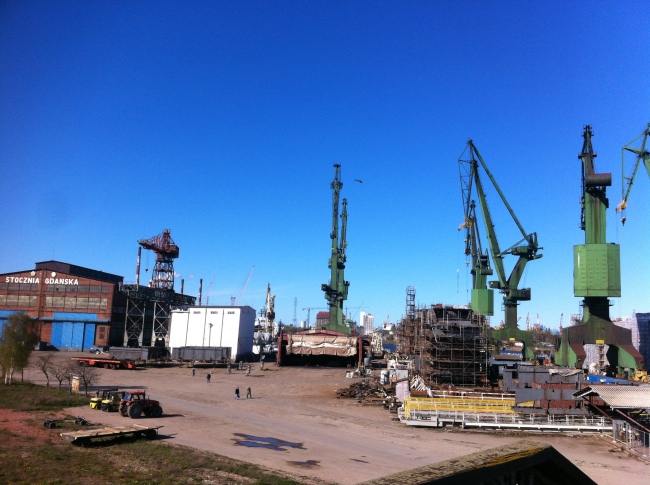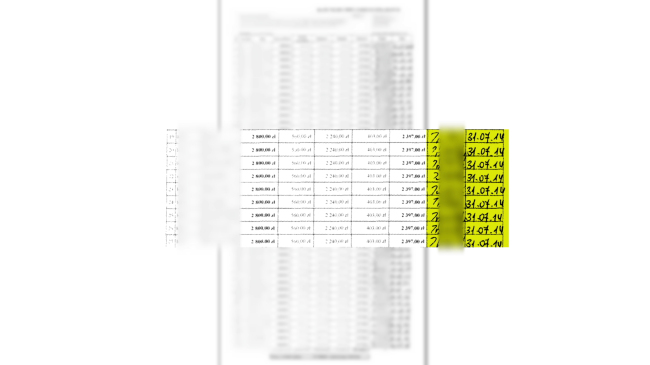EU funds allegedly help bankroll N.K. regime: study
By Shin Hyon-heePublished : May 30, 2016 - 16:46
More than 30 Polish businesses are likely to have been using European Union subsidies to pay salaries to their North Korean employees totaling up to 800, a research team said Monday, raising the possibility of funds flowing to the communist regime.
A group of academics, lawyers and human rights specialists at the Leiden Asia Center within Leiden University in the Netherlands has been delving into the practice of North Korean forced labor within the EU since last December.
According to its preliminary findings, between 400 and 800 North Koreans are currently employed by at least 32 Polish firms, ranging from construction to shipbuilding. They work more than 12 hours a day, six days a week, while receiving “significantly lower wages” than their local counterparts, the report said.
A group of academics, lawyers and human rights specialists at the Leiden Asia Center within Leiden University in the Netherlands has been delving into the practice of North Korean forced labor within the EU since last December.
According to its preliminary findings, between 400 and 800 North Koreans are currently employed by at least 32 Polish firms, ranging from construction to shipbuilding. They work more than 12 hours a day, six days a week, while receiving “significantly lower wages” than their local counterparts, the report said.

“This is if they even receive their wage at all. Mostly, managers collect the wages and workers in turn receive only a minimal livelihood allowance,” the report said.
Some of the companies were found to have received financial support from the European Regional Development Fund, which was bankrolled by the 28-nation bloc and overseen by the European Commission, thus potentially “indirectly benefiting” the Kim Jong-un regime, it noted.
Some of the companies were found to have received financial support from the European Regional Development Fund, which was bankrolled by the 28-nation bloc and overseen by the European Commission, thus potentially “indirectly benefiting” the Kim Jong-un regime, it noted.

Among the firms are shipbuilders Crist and Nauta, which took out a 37.5 million-euro ($41.6 million) loan and sold two-year bonds worth around 40 million euros, respectively, as part of the ERD program in November 2009.
The corporations may then be subject to U.N. sanctions imposed in March, which calls for an asset freeze of any person or entity “engaging in, facilitating or being responsible for the exportation of workers” from the North.
During an inspection in 2013, the Polish National Labour Inspectorate discovered that 29 North Koreans were working illegally at Crist’s shipyard. They were employed by Armex, a local recruiter that provides North Korean laborers to a number of Polish organizations, a practice that also violates Polish employment law.
But the inspectorate concluded after further investigation that the North Korean workers are self-employed and thus outside of its jurisdiction. “In a situation with obvious insufficient control mechanisms, local employers continue to hire North Korean workers who work under extremely exploitative conditions,” the report said.
“My fear is that what we have uncovered so far is just the tip of the iceberg,” Remco Breuker, a Korean studies professor at the school who led the research, said in a statement, noting that its complete report is expected to be published in early July.
“We now want to examine whether the North Koreans move from one EU country to another to work there under some kind of lease system.”
For the cash-strapped regime, overseas labor exports have long been a rare, coveted source of hard currency.
A 2015 survey by the U.N. special rapporteur on North Korea human rights alleged that more than 50,000 North Koreans are working abroad, pulling in collective annual incomes of between $1.2 billion and $2.3 billion.
Poland is deemed a major labor destination, having issued more than 430 work permits every year on average to North Koreans over the last six years, according to data from the Ministry of Labor, Family, and Social Policy. The tally could be much higher if illegal laborers are taken into account.
In its own research paper unveiled last December, the Seoul-based Database Center for North Korean Human Rights projected that some 800 North Koreans work across the European country.
By Shin Hyon-hee (heeshin@heraldcorp.com)
The corporations may then be subject to U.N. sanctions imposed in March, which calls for an asset freeze of any person or entity “engaging in, facilitating or being responsible for the exportation of workers” from the North.
During an inspection in 2013, the Polish National Labour Inspectorate discovered that 29 North Koreans were working illegally at Crist’s shipyard. They were employed by Armex, a local recruiter that provides North Korean laborers to a number of Polish organizations, a practice that also violates Polish employment law.
But the inspectorate concluded after further investigation that the North Korean workers are self-employed and thus outside of its jurisdiction. “In a situation with obvious insufficient control mechanisms, local employers continue to hire North Korean workers who work under extremely exploitative conditions,” the report said.
“My fear is that what we have uncovered so far is just the tip of the iceberg,” Remco Breuker, a Korean studies professor at the school who led the research, said in a statement, noting that its complete report is expected to be published in early July.
“We now want to examine whether the North Koreans move from one EU country to another to work there under some kind of lease system.”
For the cash-strapped regime, overseas labor exports have long been a rare, coveted source of hard currency.
A 2015 survey by the U.N. special rapporteur on North Korea human rights alleged that more than 50,000 North Koreans are working abroad, pulling in collective annual incomes of between $1.2 billion and $2.3 billion.
Poland is deemed a major labor destination, having issued more than 430 work permits every year on average to North Koreans over the last six years, according to data from the Ministry of Labor, Family, and Social Policy. The tally could be much higher if illegal laborers are taken into account.
In its own research paper unveiled last December, the Seoul-based Database Center for North Korean Human Rights projected that some 800 North Koreans work across the European country.
By Shin Hyon-hee (heeshin@heraldcorp.com)










![[Hello India] Hyundai Motor vows to boost 'clean mobility' in India](http://res.heraldm.com/phpwas/restmb_idxmake.php?idx=644&simg=/content/image/2024/04/25/20240425050672_0.jpg&u=)








